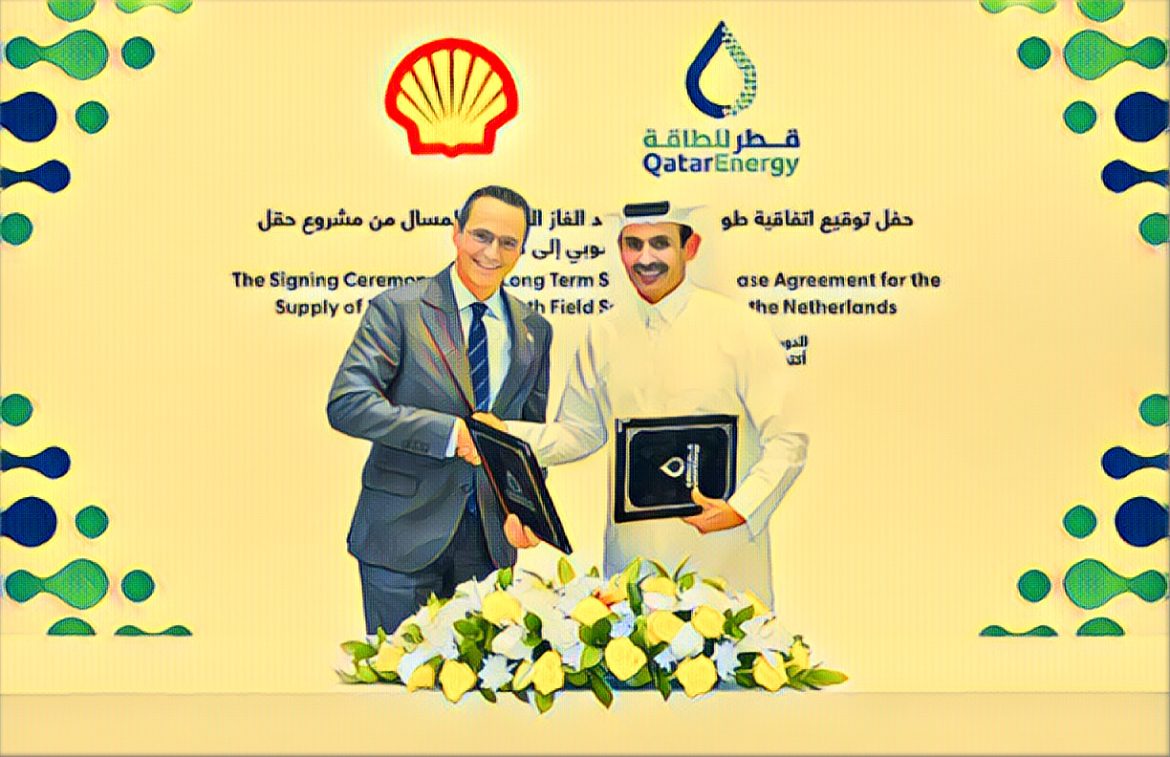Qatar, the world’s largest exporter of liquefied natural gas (LNG), has signed a long-term deal with Shell to supply the fuel to Europe, amid rising concerns over the region’s energy security. The agreement, announced on Wednesday, will see QatarEnergy, the state-owned company that manages Qatar’s LNG production, deliver up to 3.5 million tons of LNG per year to Rotterdam’s Gate import terminal for 27 years starting from 2026.
This is the second major contract that Qatar has secured to supply LNG to Europe beyond 2050, following a similar deal with France’s TotalEnergies last week. The deals come as Europe faces a severe energy crunch, with natural gas prices soaring to record highs due to low inventories, high demand and reduced supplies from Russia, its main gas provider.
Russia’s invasion of Ukraine in January has also heightened geopolitical tensions and raised fears of further disruptions to gas flows. Qatar’s Energy Minister Saad Sherida Al-Kaabi said the agreements reaffirm Qatar’s commitment to help meet Europe’s energy demands and bolster its energy security.
“Qatar is a reliable and trusted partner in the global energy markets, and we will continue to play our role in ensuring the stability and sustainability of these markets,” he said in a statement. Shell’s CEO Wael Sawan said the deal “demonstrates our confidence in the long-term fundamentals of the global LNG market and our commitment to deliver cleaner energy solutions for our customers. ”Qatar is currently expanding its LNG production capacity from 77 million tons per year to 126 million tons per year by 2027, investing tens of billions of dollars in new projects.
The country has so far committed about 40 percent of its additional LNG capacity to customers around the world, including China, Japan, Pakistan and Bangladesh.
LNG is natural gas that is cooled to a liquid form for transportation by ship. It can then be regasified at import terminals and distributed by pipelines. LNG is seen as a cleaner alternative to coal and oil, as it emits less carbon dioxide and other greenhouse gasses when burned. However, it still contributes to global warming and faces competition from renewable sources such as wind and solar.
Some analysts have also questioned the viability of long-term contracts that link LNG prices to oil, as Qatar tends to do, given the volatility and uncertainty in both markets. Nevertheless, Qatar’s deals with Shell and TotalEnergies show that there is still strong demand for LNG in Europe, especially as the continent aims to phase out coal and nuclear power and reduce its dependence on Russian gas.
The deals also reflect Qatar’s strategic vision to diversify its customer base and secure long-term revenues for its vast gas reserves, which are estimated at more than 870 trillion cubic feet. As the world transitions to a low-carbon future, Qatar hopes to maintain its leadership position in the global LNG market and contribute to the fight against climate change.
Source: Energy Voice



